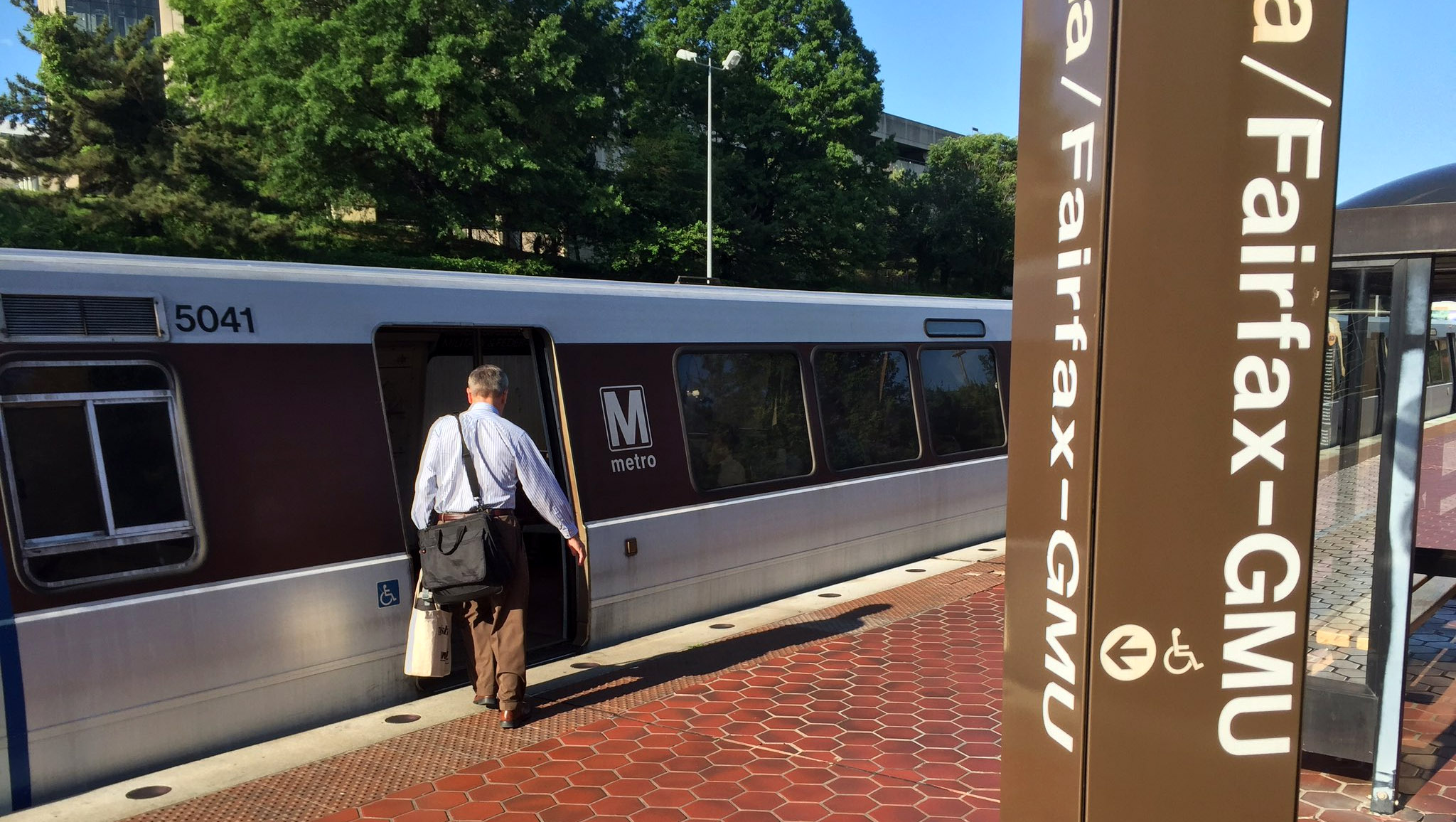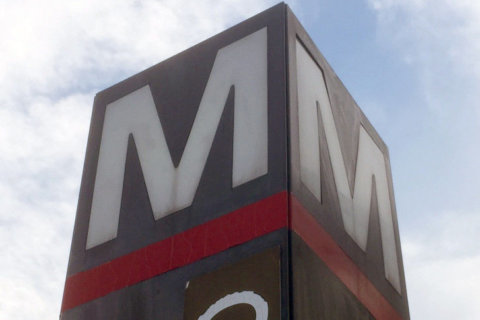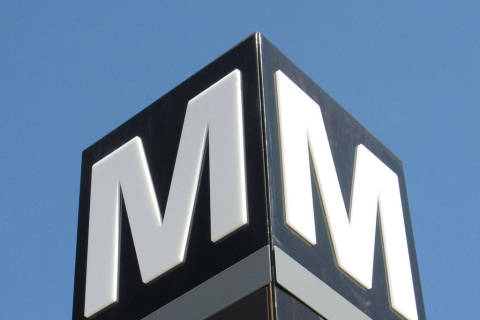Metro has set fare hikes, service improvements and service cuts that could take effect this summer, with the caveat that it could all go up in smoke depending on how long coronavirus-related restrictions remain in place.
The final proposed budget for the year starting July 1 is due to be approved by the Metro Board in a virtual meeting Thursday. The board expects to take another look at all of the changes by June, though, which could lead to significant changes depending on COVID-19 ridership and revenue impacts.
“The Board may need to consider the timing for the implementation of certain initiatives, including but not limited to, the Weekend Flat Fare and the increase to $1 of the Metrorail-Metrobus transfer fee discount,” said the resolution, due to be approved this week.
Still, a budget must be approved, both to allow for federal grant applications and to lay out a marker as local governments sort out their own budget challenges.
Under the plan, Metro would raise rush-hour rail fares, restore some late-night rail service, add some weekend and limited-stop bus service, and cut service on a number of other bus routes.
The budget also projects an April 1, 2021, launch date for Silver Line Phase 2 rail service to Dulles Airport and Ashburn. Any revenue shortfalls from that launch would be covered in the following fiscal year’s budget.
Fare changes
The minimum rush-hour rail fare would rise from $2.25 to $2.35 under the final budget proposal, and the maximum would rise from $6 to $6.50, a lesser increase than initially proposed.
It would be the first fare hike in three years.
Fare changes also raise the mileage-based fee at rush hour for longer trips, so prices will rise more quickly for trips longer than 6 miles.
Peak fares will remain in place from 5 a.m. to 9:30 a.m. and 3 p.m. to 7 p.m.
Outside of rush hour, the mileage-based fee for medium range trips will be lowered.
On weekends, Metro plans to charge a flat $2 fee for all rail trips on Saturday and Sunday.
Discounted rail fares for seniors and people with disabilities will be changed to half of the rail fare at that time of day – rush-hour, off-peak or weekends.
There are no changes to the pricing of most unlimited ride passes, but the seven-day bus pass will become cheaper going from $15 to $12.
Bus fares will remain flat, and Metro is also planning to double the transfer discount between bus and rail to $1.
Metro will also continue the Rush Hour Promise refund program.
Service changes
Metro plans to return to midnight closings Monday through Thursday, and to begin closing at 2 a.m. Friday and Saturday nights, after several years of restricted hours.
Sunday rail hours will remain 8 a.m. to 11 p.m., but Metro plans to run trains on a Saturday schedule — every 12 minutes, rather than the current 15 minutes on most lines. The Red Line would match the Saturday schedule of every six minutes rather than every eight minutes.
On weekdays, Metro plans to significantly reduce rail service between 5 a.m. and 6 a.m. while still charging peak fares. Trains would run only every 12 minutes rather than every eight minutes on each line. Metro found this could have an undue impact on lower-income or minority groups, but also said that could be offset by the return of some late-night and weekend service levels.
Metro is also planning many bus changes, although not quite as many as proposed a few months ago after outrage from riders.
The bus cuts are estimated to save Metro $7.6 million. Riders were nearly uniformly opposed to service reductions of any kind in Metro’s public comment period.
DC
- 92 (U Street-Garfield) will cut the short trips that end at Eastern Market.
- D4 (Ivy City-Franklin Square) will cut all service after 10 p.m.
- D6 (Sibley Hospital-Stadium Armory) will cut late-night trips Monday through Saturday.
- E2 (Ivy City-Fort Totten) will cut all service after 10 p.m.
- 30N, 30S (Friendship Heights-Southeast Pennsylvania Avenue/Wisconsin Avenue) will cut the last trips in each direction at night.
- 80 (North Capitol Street) will cut the last two trips each way Friday, Saturday and Sunday nights.
- 96 (East Capitol Street-Cardozo-Tenleytown) will eliminate the last trips on Friday and Saturdays, and cut the remaining last trip to end at 14th and U streets Northwest.
- G8 (Rhode Island Avenue) will cut all trips to and from Rhode Island Avenue Metro on Friday and Saturday.
- H4 (Crosstown) will cut the last trip each way on Friday, Saturday and Sunday.
- P6 (Anacostia-Eckington) will cut all service between 2 a.m. and 4 a.m.
- W4 (Deanwood-Alabama Avenue) will cut the last northbound trip each day and the last southbound trip on Saturdays and Sundays.
Maryland
- B29 (Crofton-New Carrollton) will cut the whole line.
- B30 (BWI Marshall Airport) will cut the whole line.
- C4 (Greenbelt-Twinbrook) will cut late-night service weekdays.
- J2 (Bethesda-Silver Spring) will cut late-night service weekdays.
- K6 (New Hampshire Avenue) will cut late-night service weekdays.
- L8 (Connecticut Avenue) will cut early morning and evening service weekdays.
- T2 (River Road) will cut early morning and evening service weekdays.
- Y2 (Georgia Ave) will cut late-night service weekdays.
- Z6 (Calverton-Westfarm) will cut service to Burtonsville, extend service to Greencastle to replace part of Z8.
- Z8 (Fairland) will cut the whole line
- Z11 (Burtonsville-Greencastle Express) will cut the whole line
Virginia
- NH2 (National Harbor-Alexandria) will cut the section of the route from Huntington to King Street Metro and run less frequently.
- 3T (Pimmit Hills) will eliminate the segment between East Falls Church and West Falls church in December.
- 5A (Dulles Airport) will cut the whole line when the Silver Line opens to riders.
- S80, S91 (Springfield Circulator) will cut the whole line in December.
- 2A (Washington Blvd.-Dunn Loring) will cut the last trip each way on Friday and Saturday nights.
- 10A/10N (Alexandria-Pentagon) will cut all trips on Route 10N on weekends, and cut the last 10A trip each way Friday, Saturday and Sunday nights.
- 16E (Columbia Pike) will cut morning service on Sundays between the Pentagon and Franklin Square.
Metro does plan some weekend bus service improvements:
DC
- 80 (North Capitol Street) will run every 20 minutes, instead of every 30 minutes, on weekends.
- E4 (Military Road) will run more frequently — every 20 minutes on weekends.
- P6 (Anacostia-Eckington) will run every 20 minutes, rather than every 35 minutes, on weekends.
- S2 (16th Street) will run more frequently on Sundays — every 20 minutes.
- S9 (16th Street) will run more frequently on Sundays — every 20 minutes
Maryland
- 83/86 (College Park) will run every 30 minutes each rather than every 60 minutes on weekends, for service every 15 minutes where lines overlap.
- A12 (MLK Jr. Highway) will run every 45 minutes on Sundays (an increase in service).
- C29 (Central Avenue) will run every 30 minutes, rather than every 60 minutes, on weekends.
- F4 (New Carrollton-Silver Spring) will run more frequently — every 20 minutes on weekends.
- Y2/Y8 (Georgia Avenue) will run every 20 minutes, rather than every 24 minutes, on weekends.
Virginia
- 7A/7F (Lincolnia-North Fairlington) will run more frequently on Sundays, every 30 minutes.
- 23B/23T (McLean-Crystal City) will run more frequently on Sundays — every 30 minutes each — for service every 15 minutes where lines overlap
- 28A (Leesburg Pike) will run more frequently on Sundays, every 20 minutes.
MetroExtra
On weekdays, Metro plans to add some limited-stop MetroExtra improvements.
- 79 (Georgia Avenue) will run three more hours weeknights until 10 p.m.
- X9 (Benning Road-H Street) will run more frequently at rush hour and extend service weeknights by an hour to 7:45 p.m.
- K9 (New Hampshire Avenue) will add midday service.
- 16Y (Columbia Pike-Farragut Square) will extend morning rush hour service an hour to 10 a.m. and extend evening rush hour service an hour to 8:15 p.m.
In order to avoid other discrimination and planning provisions, Metro will not change the MetroAccess paratransit service area due to these bus service changes.
Money breakdown
Metro’s $2.1 billion operating budget and $1.8 billion capital budget is still largely as it was initially proposed this fall, without any major changes yet due to coronavirus concerns.
Local governments would be responsible for $1.2 billion in total operating subsidies for the bus, rail and paratransit system.
“The COVID-19 pandemic is causing significant unfavorability to Metro’s revenues and expenses in FY2020. The full extent and duration of the pandemic’s impacts to Metro and the region are unknown with significant uncertainty and potential to extend into FY2021,” Metro documents said.
Other risks include stock market volatility, Silver Line Phase 2 ridership and uncertain federal funding.
The coronavirus relief package signed into law last week does provide a significant lifeline for Metro and other transit systems by filling the immediate hole from lost ridership.
Still, after factoring in the launch of Silver Line service next spring, the budget proposal calls for a 9.9% increase in operating funding from the District, a 10.2% increase in operating funding from Maryland, and similar increases for the local governments that foot the bill in Virginia.
Alexandria’s operating payment would rise by 8.1%, Arlington’s 5.7%, the City of Fairfax’s 15.4% and Fairfax County’s 8.3%. Falls Church’s payments would drop 1.5% due to bus service changes, and Loudoun County is set to pay in for rail service for the first time.
Metro expects to collect $551.3 million in rail fare revenue and $117.8 million in bus fare revenue over the course of the year, plus $44.5 million in parking revenue and $35.8 million in advertising among other revenue streams.
Overall, Metro expects to recover about 57% of its costs for the rail system, 19% for the bus system and 4.5% for MetroAccess service.
That includes up to $17 million set to be shifted from the capital budget to the operating budget to make up for ridership losses due to major 24/7 track work like the closures planned this summer at Orange and Silver Line stops in Virginia.
The biggest operating budget cost is the people needed to run the system, at $1.39 billion.







